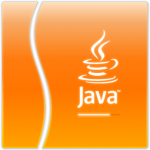 In my last article on this topic I brought a brief introduction into installing XMPP server Prosody on you Debian/Ubuntu based server. In this follow-up article I'll show you how to configure Bidirectional-streams Over Synchronous HTTP (BOSH) XMPP extension on Prosody XMPP server with the intention of creating XMPP powered web applications.
In my last article on this topic I brought a brief introduction into installing XMPP server Prosody on you Debian/Ubuntu based server. In this follow-up article I'll show you how to configure Bidirectional-streams Over Synchronous HTTP (BOSH) XMPP extension on Prosody XMPP server with the intention of creating XMPP powered web applications.
Tag Archives: Ubuntu
Customize default desktop environment settings for Gnome-centric Linux distributions
 Some of you are probably wondering why would you want to spend your time fiddling with default desktop environment settings customization, when you can easily customize everything to your liking inside you own user account? Most probably you'd want to do this when you're re-mastering your favorite Linux distribution using tools like OS4 system imager (fork of the now discontinued Remastersys) or Relinux. In this article I'll show you how to handle this task elegantly using GSettings vendor overrides.
Some of you are probably wondering why would you want to spend your time fiddling with default desktop environment settings customization, when you can easily customize everything to your liking inside you own user account? Most probably you'd want to do this when you're re-mastering your favorite Linux distribution using tools like OS4 system imager (fork of the now discontinued Remastersys) or Relinux. In this article I'll show you how to handle this task elegantly using GSettings vendor overrides.
Install Magento on Ubuntu and fix PHP Extensions "0" must be loaded error with PHP 5.4
 Event though I follow MVC pattern in many of my web related projects, like every PHP web developer I came to the point when I have to dive into some well established MVC PHP framework. This is something backend developer must do if he wants to stop being a lone wolf and start working inside a team of developers. Web frameworks of my choice are fast Codeigniter and powerful Zend Framework. Getting to know about Codeigniter wasn't hard, but mastering Zend is still work in progress especially since Zend Framework 2 has been recently released. Talking about Zend, recently I got interested in getting to know about open source eCommerce solutions and I choose to get acquainted with Zend based Magento. In this article I'll show you how to install Magento on a Debian based distributions like Ubuntu and provide workaround for the PHP Extensions "0" must be loaded error thrown by Magento installer running on PHP 5.4.
Event though I follow MVC pattern in many of my web related projects, like every PHP web developer I came to the point when I have to dive into some well established MVC PHP framework. This is something backend developer must do if he wants to stop being a lone wolf and start working inside a team of developers. Web frameworks of my choice are fast Codeigniter and powerful Zend Framework. Getting to know about Codeigniter wasn't hard, but mastering Zend is still work in progress especially since Zend Framework 2 has been recently released. Talking about Zend, recently I got interested in getting to know about open source eCommerce solutions and I choose to get acquainted with Zend based Magento. In this article I'll show you how to install Magento on a Debian based distributions like Ubuntu and provide workaround for the PHP Extensions "0" must be loaded error thrown by Magento installer running on PHP 5.4.
Install Oracle (Sun) Java JRE or JDK 7 on Debian, Ubuntu and LinuxMint
 In one of my previous articles I've dealt with creating Oracle (Sun) Java 6 packages for your favorite Debian based distro. Since Oracle Java 7 has been out for a while now and it's code has matured to the point of OpenJDK 7 being default in recent Linux distributions, it seems reasonable to upgrade. In this article I'll show you how to create Oracle (Sun) Java JRE and JDK 7 packages using Janusz Dziemidowicz packaging work from Java 7 binary files you have downloaded your self.
In one of my previous articles I've dealt with creating Oracle (Sun) Java 6 packages for your favorite Debian based distro. Since Oracle Java 7 has been out for a while now and it's code has matured to the point of OpenJDK 7 being default in recent Linux distributions, it seems reasonable to upgrade. In this article I'll show you how to create Oracle (Sun) Java JRE and JDK 7 packages using Janusz Dziemidowicz packaging work from Java 7 binary files you have downloaded your self.
Fix "Could not reliably determine the server's fully qualified domain name" when starting Apache server on Ubuntu
 Using Apache 2 development environment on your Ubuntu machine most likely involves looking at "Could not reliably determine the server's fully qualified domain name, using 127.0.0.1 for ServerName" message each time your machine boots. Here's how to make this irritating message disappear when starting Apache 2 server by specifying ServerName inside Apache 2 configuration files.
Using Apache 2 development environment on your Ubuntu machine most likely involves looking at "Could not reliably determine the server's fully qualified domain name, using 127.0.0.1 for ServerName" message each time your machine boots. Here's how to make this irritating message disappear when starting Apache 2 server by specifying ServerName inside Apache 2 configuration files.